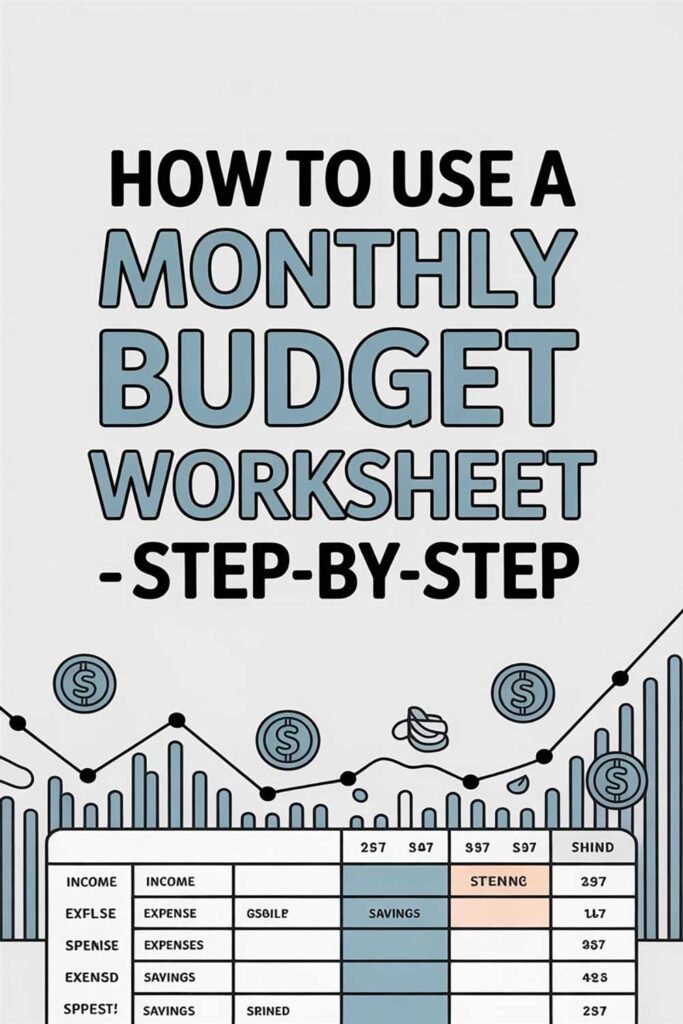Short-Term vs Long-Term Money Goals: What You Need to Know
Setting money goals is one of the most powerful steps you can take to improve your financial life. But not all goals are created equal. Some need attention right now, while others require a long-term mindset and strategy. That’s why understanding the difference between short-term and long-term money goals is so essential to creating a plan that works.

In this article, we’ll break down the difference between the two, how to balance them, and why you need both to build true financial freedom. You’ll also find real-life examples, tips for staying motivated, and quotes to keep you inspired along the way.
What Are Short-Term Money Goals?
Short-term money goals are financial targets you want to achieve within a short period, typically within a few months to two years.
Common Examples:
- Paying off a credit card balance
- Saving for a vacation
- Creating a monthly budget
- Building a $1,000 emergency fund
- Buying a new laptop or appliance
Why They Matter:
Short-term goals provide quick wins and boost your confidence. They help you stay focused and give you momentum that builds toward long-term success.
Real-Life Example:
Samantha, a college graduate, set a short-term goal to pay off her $2,000 credit card balance in six months. She cut her dining expenses and took on tutoring jobs on weekends. By the end of six months, she was debt-free and used her new budgeting skills to start saving for a new car.
What Are Long-Term Money Goals?
Long-term money goals usually take more than two years to achieve and often involve larger amounts of money or complex planning.
Common Examples:
- Saving for retirement
- Paying off student loans
- Buying a home
- Building a college fund for your child
- Reaching financial independence
Why They Matter:
These goals build lasting wealth and security. They often require regular contributions and disciplined commitment over time.
Real-Life Example:
Tina and Jamal started saving for a home down payment in 2020 by automatically transferring $500/month into a separate savings account. Four years later, they had saved $24,000 and qualified for a mortgage on their first home.
How to Set Short-Term and Long-Term Goals That Work
1. Be Specific
Don’t say: “I want to save money.” Say: “I want to save $5,000 for a vacation by next August.”
2. Make It Measurable
Track progress regularly. Use spreadsheets or budgeting apps like Mint or YNAB.
3. Set a Timeline
Define when you want to reach your goal. Deadlines drive action.
4. Automate Your Progress
Set up automatic transfers to savings or debt payments so you don’t have to rely on willpower alone.
5. Celebrate Milestones
Even a 10% progress win is worth acknowledging. It keeps your momentum strong.
How to Balance Short-Term and Long-Term Goals
A healthy financial life includes both types of goals. Focus too much on the short term, and you might miss long-term wealth. Focus too much on the long term, and you could miss today’s needs.
Pro Tip: Use the 50/30/20 Rule
- 50% of your budget: needs
- 30% of your budget: wants
- 20% of your budget: savings/debt payoff
Within that 20%, you could allocate:
- 10% to long-term goals (retirement, home)
- 10% to short-term goals (emergency fund, vacation)
Real-Life Example:
Carlos used this rule to build a $1,000 emergency fund in 6 months while also investing in his Roth IRA monthly. It gave him peace of mind today and a more secure future.
Mistakes to Avoid
❌ Setting Too Many Goals at Once
Focus on 1-2 goals per time period. You’ll avoid burnout and stay focused.
❌ Not Adjusting Over Time
Goals should be flexible. Life changes, so adjust timelines and expectations as needed.
❌ Ignoring Inflation and Taxes
Long-term plans should account for future increases in cost and possible tax implications.
Tools to Help You Reach Your Goals
- Budgeting Apps: YNAB, Mint, EveryDollar
- Investing Platforms: Fidelity, Vanguard, Betterment
- Savings Accounts: Ally, Capital One 360, Discover Online Savings
- Net Worth Trackers: Personal Capital, Monarch Money
💬 20 Quotes to Inspire Your Financial Goals
- “A goal properly set is halfway reached.” – Zig Ziglar
- “Don’t watch the clock; do what it does. Keep going.” – Sam Levenson
- “Success is the sum of small efforts, repeated day in and day out.” – Robert Collier
- “Setting goals is the first step in turning the invisible into the visible.” – Tony Robbins
- “Discipline is choosing between what you want now and what you want most.” – Abraham Lincoln
- “The future depends on what you do today.” – Mahatma Gandhi
- “The man who moves a mountain begins by carrying away small stones.” – Confucius
- “Financial freedom is available to those who learn about it and work for it.” – Robert Kiyosaki
- “You must gain control over your money or the lack of it will forever control you.” – Dave Ramsey
- “Small deeds done are better than great deeds planned.” – Peter Marshall
- “Success usually comes to those who are too busy to be looking for it.” – Henry David Thoreau
- “An investment in knowledge pays the best interest.” – Benjamin Franklin
- “It’s not about having more money. It’s about having more control.” – Unknown
- “Time is more valuable than money. You can get more money, but you cannot get more time.” – Jim Rohn
- “A budget is telling your money where to go instead of wondering where it went.” – John Maxwell
- “Wealth consists not in having great possessions, but in having few wants.” – Epictetus
- “The best way to predict your future is to create it.” – Abraham Lincoln
- “You can’t reach long-term goals with short-term excuses.” – Unknown
- “Start where you are. Use what you have. Do what you can.” – Arthur Ashe
- “The journey of a thousand miles begins with one step.” – Lao Tzu
📸 Picture This
It’s the end of 2025. You’ve knocked out a few key short-term goals — maybe paid off a credit card and saved for a new laptop. You’ve also been steadily putting away money for your long-term goals — your retirement account is growing, and that house down payment is taking shape. You’re feeling balanced, in control, and optimistic. Your finances are no longer a source of stress — they’re a tool for building the life you want.
What would your life look like if you got serious about both your short- and long-term goals starting today?
💬 Please Share This Article
If this helped you clarify your financial path, please share it with someone you care about. Knowledge grows when it’s shared — and together, we can all build stronger futures.
⚠️ Disclaimer
This article is based on general financial principles and real-world experiences. It is not intended to replace professional financial advice. Results may vary. Always consult a licensed financial advisor before making major decisions.






